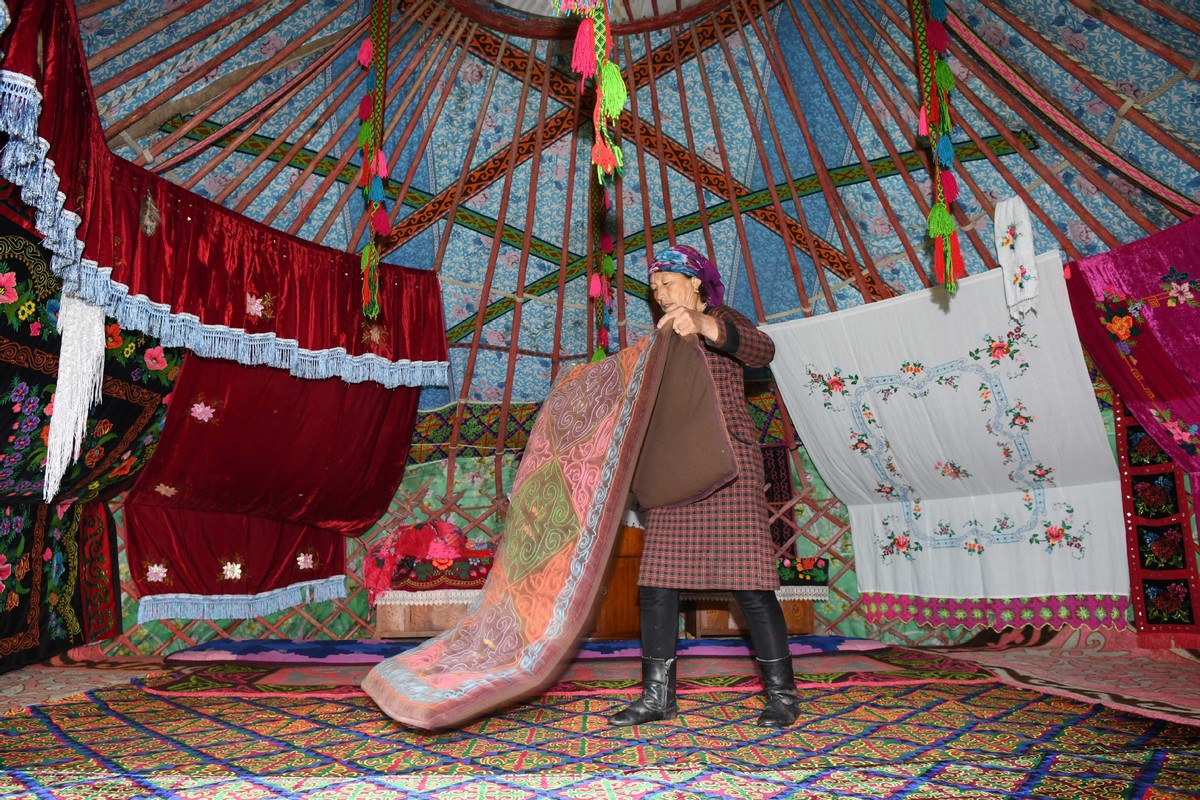Herders revel in tradition and tourism


Cooperative living
In addition to continuing their tradition of raising livestock on the grassland, many residents, including Bahargul, have started tourism-related businesses.
In 2014, Bahargul and some of her peers founded a cooperative to provide yurts as guesthouses, offering standardized, quality services to tourists. The group owns 40 yurts, each of which can accommodate eight to 10 people, she said.
She got the idea in July 2008, when a family of three from Beijing asked to stay overnight in her spare yurt because they didn't want to miss the sun rising and setting over the grassland. Those sights are commonplace to the herders, who, unlike the family, never regard them as "breathtaking", Bahargul said.
As a result, she discussed establishing a yurt hotel with the other residents as a means of earning extra income. "It's a win-win situation," she said.
The following year, nine other families followed in Bahargul's footsteps and started renting yurts to tourists.
Initially, the yurts were scattered haphazardly across the grassland, and the quality of food and other services provided by the families varied greatly.
Gradually, problems started to surface, such as guests expressing concerns about hygiene in the yurts.
Even more worrisome was the tourists' habit of dumping rubbish, such as plastic bags and cutlery, on the grassland because the waste disposal facilities were too far away.
"As Kazaks, it is our duty to protect the grassland. So when the Narat is hurt, we are hurt," Bahargul said.
In response, the herders discussed the situation and decided to establish the cooperative. Their first action was to move all the yurt guesthouses much closer to the waste-disposal facilities.
"Learning to serve guests at the professional level is never easy for herders. You can leave the sheep out all day and shout at them all you want, but you cannot do that to guests who need regular quality services," said Bahargul, who is head of the cooperative.
The members have drawn up standards for services and hygiene, and even held a competition to see who had the best taste in interior decoration for the yurts.
"People brought all the most-precious traditional decorations from their homes so the guests can be submerged in Kazak culture as soon as they step into a yurt," Bahargul said.
























